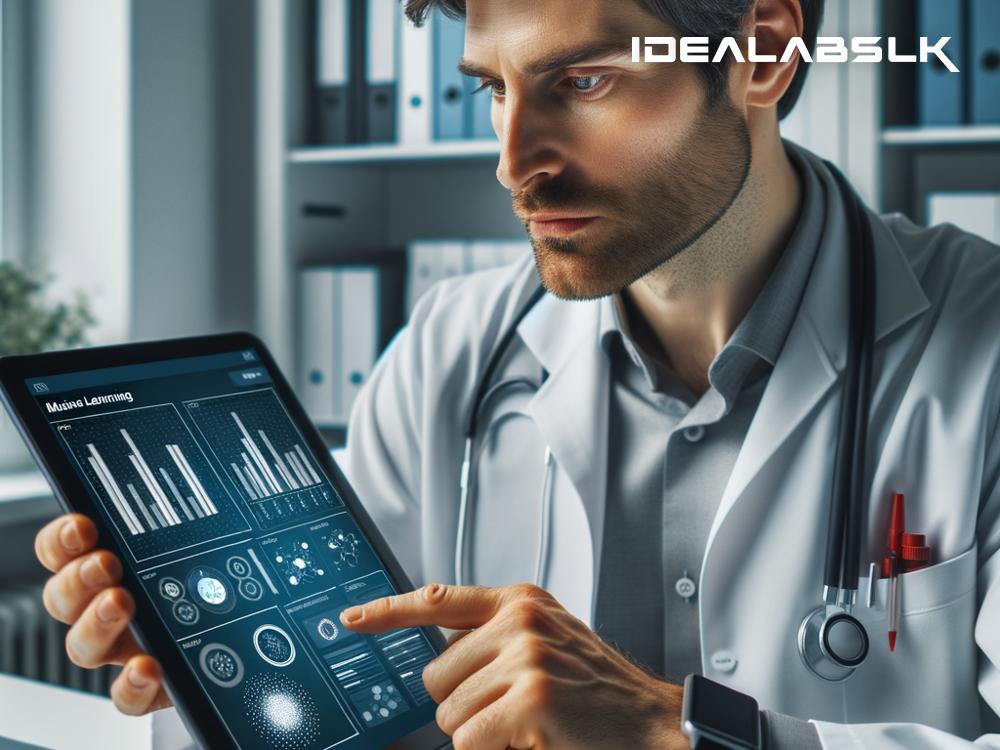Title: Revolutionizing Healthcare: How Machine Learning Boosts the Precision of Blood Test Results & Diagnoses
In the sophisticated realm of healthcare, where each drop of blood can unravel mysteries about our well-being, machine learning stands out as a dazzling beacon of hope. This incredible blend of computer science and healthcare isn't just about robots and fancy gadgets; it's fundamentally transforming how doctors understand and diagnose diseases. So, how exactly is machine learning refining the accuracy of blood test results and diagnoses? Let’s delve into this exciting journey.
The Magic of Machine Learning in Medicine
At its core, machine learning is a segment of artificial intelligence (AI) that enables computers to learn from and make decisions based on data. Imagine teaching your computer to recognize patterns, much like teaching a child to differentiate between various shapes and colors. In the context of blood tests, this capability is nothing short of revolutionary.
Blood tests are a gateway to a treasure trove of information about diseases, infections, and the overall state of our health. However, interpreting these tests accurately has always been challenging due to the sheer complexity and variability among individuals. This is where machine learning swoops in, armed with algorithms and data, ready to transform the diagnostic landscape.
Enhancing Accuracy Like Never Before
One of the standout features of machine learning is its ability to sift through vast amounts of data at an unprecedented speed. For blood tests, this means algorithms can quickly analyze patterns and anomalies in the blood samples that might be invisible to the human eye. By training these algorithms with thousands, if not millions, of data points from previous blood tests, machine learning models can predict abnormalities and diagnose diseases with astonishing accuracy.
Take, for example, the early detection of cancers or the identification of rare diseases—areas where traditional methods might falter due to the subtlety of signs in the initial stages. Machine learning algorithms can detect these elusive markers, thereby enabling early intervention and, subsequently, better patient outcomes.
Personalized Diagnoses at Your Fingertips
One size does not fit all, especially in healthcare. Each individual's genetic makeup and lifestyle are unique, affecting how diseases manifest and progress. Machine learning excels in personalizing diagnoses by considering these variances. By analyzing a person’s specific data, including past blood test results, genetic information, and even lifestyle factors, these algorithms can tailor diagnoses and treatment plans. This personalized approach not only enhances the accuracy of blood tests but also propels the entire healthcare experience into a new era of precision medicine.
Embracing the Future, Together
The integration of machine learning into diagnosing diseases through blood tests is a collaborative effort. It involves data scientists, doctors, and even patients contributing data and expertise to refine these algorithms continuously. As this technology advances, healthcare professionals receive training to interpret machine learning outputs, while patients are educated on the significance of their data.
Such symbiotic relationships underscore the need for ethical considerations and data privacy measures. Ensuring the security of personal health information and addressing biases in machine learning models are paramount to fostering trust and maximizing the potential of this cutting-edge technology.
From Vision to Reality: Success Stories and the Road Ahead
Across the globe, there are numerous success stories where machine learning has significantly improved the accuracy of blood test results and diagnoses. For instance, certain algorithms can now predict the likelihood of diabetes-related complications years before traditional methods would catch them. Elsewhere, machine learning models are being used to identify biomarkers for Alzheimer’s disease with unprecedented precision.
Despite these advances, the journey is far from over. The potential for machine learning in healthcare is vast, with ongoing research aimed at tackling more complex diseases and enhancing the efficiency of current models. As technology progresses, the day isn’t far when a simple blood test, analyzed by machine learning algorithms, could offer a comprehensive snapshot of one’s health, predicting potential diseases long before they rear their head.
The Bottom Line
Machine learning is not just improving the accuracy of blood test results and diagnoses; it's redefining the very essence of healthcare. With each algorithm trained and every data point analyzed, we inch closer to a future where diseases are not just reactively treated but proactively managed. As we stand on the cusp of this exciting frontier, one thing is clear—the fusion of biology and technology through machine learning promises a healthcare revolution that is as profound as it is hopeful.
In simple English, machine learning is like a super-smart assistant that's helping doctors get better at spotting diseases from blood tests. It's making things more accurate, personal, and ahead of time. The journey is thrilling, with a promise of healthier lives ahead, thanks to this smart tech.

